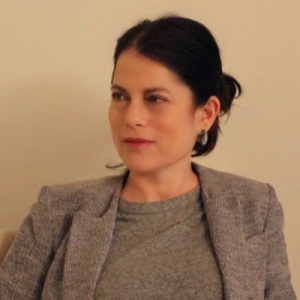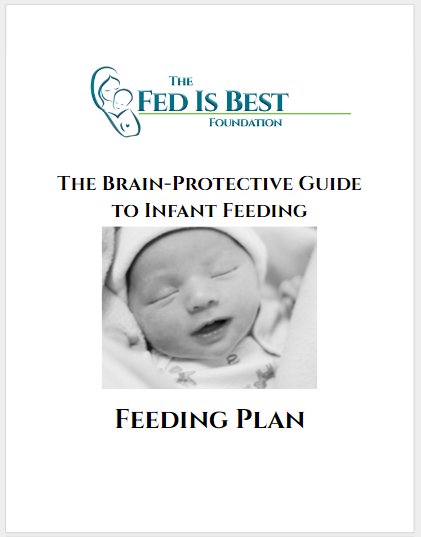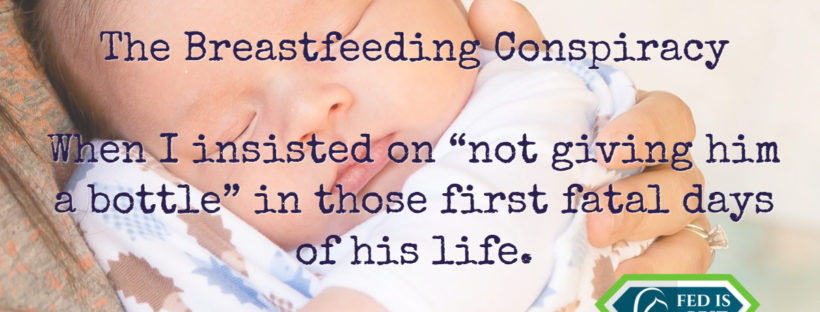I wrote this piece over thirteen years ago, at the time thinking of publishing it as a New York Times Op Ed but eventually losing the courage to do so. The subject was just too raw and painful. Next month my son will be fourteen. He is wonderful and healthy but has severe ADHD and learning disabilities that have shaped his and our life everyday since he was born and will continue to shape them always. I will never know the effects of what I now call the breastfeeding conspiracy on my son. I know that he had, and still has, low muscle tone, which may have caused his inability to suck properly in his first days of life. Or it may be that this and other setbacks were the result of the dehydration he suffered when I insisted on “not giving him a bottle” in those first (near-}fatal days of his life.
by Mikhal Dekel
June, 2003
I might as well come out and say it out front: I hate breastfeeding! I am the mother of a three months old baby who hates breast-feeding. I hate the tedious minutes and hours it takes to feed my son at the breast. I hate worrying whether he got enough or not.I hate being the only person who gets to get up every two hours, since no one else can feed him. I hate the sore nipples, the constant back, shoulder and neck pain. I hate having to sleep in my bra because my breasts hurt so much. I hate not being able to wear normal clothes because of dripping and stains, and because I need to wear something that can slip off anytime, something baggy and uncomplicated like my husband’s old, stained tee-shirts. I hate having turned my breasts into a public spectacle. I hate “My Brest Friend”: the unattractive nursing pillow that trails me everywhere in the apartment. I hate “Pump-in-Style,” my $300 breast pump; my hands-free boustier that involves two cones sticking out of my breasts, Madonna Style ($40); the lactation consultants that charges $150 an hour to tell me that my baby isn’t getting enough on the breast and therefore needs these additional devices; the Supplemental Feeding System (a container and tube that you tape to your breast so the baby takes even his supplement ‘on the breast’ ($40); the breast pads and the soothies ($20-$30 dollars); the special maternity bras ($40 each) – all that is needed though one of the selling points of breast feeding is that it’s free! I hate the Upper Breast Side, a breastfeeding “boutique” (!!!) that sells all of the above, as well as baby tee- shirts with slogans like “I was never weaned”, “breast milk every day keeps the doctor away”, and where at any given time, dozens of women are collectively measured for maternity bras and every other breastfeeding gadget imaginable. And yet, I too have been at the Upper Breast Side many times, purchased its gadgets, shed many tears over breast feeding anxieties, drove my self and everyone around me crazy, dreamt about it, and spent many a therapy sessions on it. So this article, as must be obvious, is first and foremost an exorcism of the ghost of breastfeeding.
I will never know the effects of what I now call the breastfeeding conspiracy on my son. It did not go well for me, and nearly ended in my son’s death.
True, not everyone wants, or needs these gadgets. It is probably my breastfeeding envy talking here. When it goes well, they say, breastfeeding is the simplest, most natural thing. But how often does it go well and how often does it not? There are no statistics to be found. It did not go well for me, and nearly ended in my son’s death. My son was born three months ago, 6 pounds and 1 ounce, just above what is called low birth weight. The delivery was quick and natural but frantic, a little scary, carried out by an initially by an inexperienced intern, then by a resident, with my doctor away on vacation. On a Friday night at the Maternity Ward at Saint Luke’s Roosevelt there was no doctor to be found, very few nurses and no lactation aids. I was determined to breastfeed my son. Why? Because no other option was possible. Every good, committed mother – that is, everyone around me both in Israel, where I’m from, and in New York, where I live, breastfed. The OB assumed I would breastfeed, every single birthing book I read told me I would breastfeed. It wasn’t even a question. Breastfeeding difficulties other than sore nipples (just “sore,” no mention of yeast infections, abscess, bleeding, cuts and bruises…) are nonexistent in literature such as the “Womanly Art of Breast Feeding.” In “Going Home: You and Your baby,” a guide to postpartum care distributed by the hospital, a full half was devoted to the importance of breastfeeding.While the other half was devoted to various dangers that may befall the infant – “Sudden Infant Death Syndrome” (SIDS), “Shaken Baby Syndrome” (SBS) – no mention was made of any problems that may arise from breastfeeding.
While the other half was devoted to various dangers that may befall the infant – “Sudden Infant Death Syndrome” (SIDS), “Shaken Baby Syndrome” (SBS) – no mention was made of any problems that may arise from breastfeeding.
My son was small and seemingly feeble. He seemed to barely suck but I wasn’t quite sure. I was a first time mother with no family around. I asked the pediatrician who had to do his Apgar tests but he was cavalier, saying that my milk “will come in” and that newborns have reserves that can keep them alive for a while after being born. The next day, a steamy April afternoon, we took my son home. At first he cried, then he stopped crying at all, while at my breast the entire time. We were lucky. A former housekeeper who had come to visit said immediately: “the baby does not look good.” And a lactation consultant we called in told us to rush him to the doctor, who told us to rush him to ICU. Later that same pediatrician told me that since I was an older mother – 37 – my breast milk must have been too salty. When we arrived the ICU my son was near death, utterly dehydrated. He was immediately poked and connected to a transfusion of salts and minerals and remained in ICU for four days, during which I slept at the hospital, continued to try to breastfeed him, crying the entire time and feeling sneered at by the nurses (I was the woman with a PhD who was too lazy and incompetent to breastfeed…). After we took my son home I combined breastfeeding and pumping with a bottle and I continue to do this today, though I cannot shake the trauma of those first days.

Mikhal Dekel is a Professor of English and Comparative Literature at the City College and the Graduate Center of the City University of New York, and hold a Ph.D in Comparative Literature from Columbia University.

For information on #SafeBreastfeeding– please look for resources at: www.fedisbest.org
Our feeding plan is downloadable and free–http://fedisbest.org/resources-for-parents/feeding-plan/

